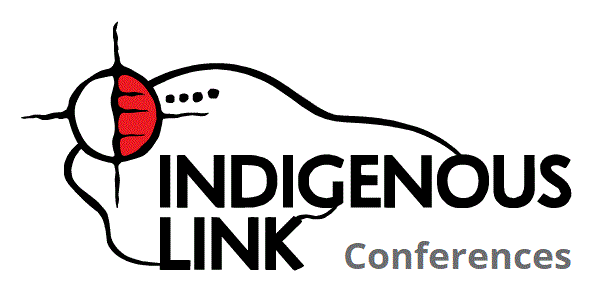Canada Research Chair, Tier 1 In Public Policy In A Polarized Era | |
| Job ID | B2-4C-1C-F3-F5-DF |
| Company | University Of Saskatchewan |
| Location | Saskatoon |
| Province | Saskatchewan |
| Date Posted | 2024-06-10 |
| Posted Until | 2024-12-07 |
| Job Type | Full-time |
| Job Category | Education |
| Job Details | View attachment |
| Description | |
| The Johnson Shoyama Graduate School of Public Policy (JSGS) at the University of Saskatchewan (USask) is recruiting for a Tier 1 Canada Research Chair (CRC) in Public Policy in a Polarized Era. The Canada Research Chairs Program is the flagship of a national strategy to make Canada a world-leading country in research and development and is committed to addressing Research Chair equity gaps. Canada's policy context is highly complex, and our understanding of governance needs to be adapted to the realities of dissolving social cohesion, increasing populism, the ongoing processes of reconciliation, and growing distrust of both science and government. The Tier 1 CRC in Public Policy in a Polarized Era will lead cutting-edge research into the governance tools necessary to advance evidence-informed policy in an era of political polarization. This CRC is both timely and necessary. Both misinformation (false or misleading information) and disinformation (misinformation spread with a deliberate intent to deceive) are on the rise. These dynamics feed political polarization and create a powerful negative feedback loop that makes evidence-informed policy difficult. Polarization is a broad international social phenomenon that is limiting the potential for science-based advancement to translate into public policy. The context for evidence-informed policy in Canada and other advanced democracies has never been more challenging or complex. If we are to achieve the potential for scientific and technological advancement to address the world's most challenging problems, there is a need for change. The CRC will help advance both policy frameworks and policy training. In turn, by improving the context for evidence-informed policymaking, the CRC will: - Improve the quality of life in Canada; - Train graduate students and postdoctoral fellows to become policy leaders equipped to advance evidence-informed policy through innovative public engagement research and practices suitable for a polarized political environment; - Create new graduate course offerings on policy and polarization available to students in a wide range of disciplines; - Partner with USask researchers in areas highly affected by polarization; - Establish international interdisciplinary networks of scholars focused on the issue of evidence-informed policy within a context of polarization; and - Increase evidence-informed policy tools through JSGS's strong government connections for use by policymakers. | |
| Start Date | July 1, 2026 |
| Salary | A Competitive Salary Commensurate With Experience And Appointment Will Be Negotiated. |
| Credentials | The University of Saskatchewan is committed to diversity, inclusion, and equity in the workplace. The candidate must be a member of one of the four federally designated equity groups (women and gender equity-seeking groups, racialized individuals, Indigenous Peoples, and persons with disabilities). Recruitment will be guided by the Canada Research Chairs Equity, Diversity and Inclusion Practices and by the strong commitment of the University of Saskatchewan and JSGS to equity, diversity, and inclusion. The University of Saskatchewan is committed to supporting employees in need of accommodation in an employment context. For more information about the University of Saskatchewan's accommodation policy, please contact Abdur Rehman, Talent and EDI Consultant (abdur.ahmad@usask.ca) or Jill Pecar, Human Resources Strategic Business Advisor (jill.pecar@usask.ca). |
| Education Requirements | We are looking for an experienced scholarly colleague with a doctoral degree in political science, public administration, economics, or a related social science discipline. They will have a research track record in an area related to public policy and/or governance. |
| Experience | Candidates must be able to demonstrate excellence in research through academic recognition, impactful publications, successful partnerships, trainee achievements, and impressive external research funding. High-quality teaching at the graduate level and engaging with the public and relevant communities are also important facets of the CRC. Tier 1 Chairs are intended for outstanding and innovative world-class researchers whose accomplishments have had a major impact in their field and are recognized internationally as leaders in their field. Please consult the CRC website for eligibility details or contact the University of Saskatchewan's Research Acceleration and Strategic Initiatives (RASI) unit for more information (rasi.support@usask.ca). The impact of leaves (e.g., parental leave, extended leave due to illness, etc.) will be carefully considered when reviewing the candidate's record of research achievement. Therefore, candidates are encouraged to explain in their application how career interruptions may have impacted their research record. The successful candidate will be nominated for a Tier 1 Canada Research Chair. Once the chair appointment is approved by the CRC Secretariat, the candidate will be appointed as a tenured faculty member in the Johnson Shoyama Graduate School of Public Policy at the Associate Professor or Professor level. |
| Languages | English |
| How To Apply | Click "Apply Now" Applications will be accepted and evaluated until the position is filled. However, the review of applications will commence in September 2024, and the anticipated start date is July 1, 2026. Applications from all outstanding candidates, including international researchers, permanent residents of Canada, and Canadian citizens are encouraged. Interested and qualified candidates must include the following documents in a single PDF file: Cover Letter Curriculum Vitae Research Statement: This statement (maximum two pages) should describe the candidate's most significant contributions, current lines of enquiry, and future research directions. Teaching Statement: This statement (maximum two pages) should describe the candidate's teaching philosophy, methods, and experience. References: Contact information for three academic references. Applications must be submitted through the "Apply Now" button (top left of page) here. Here are some tips on applying and instructions on how to apply. As part of the application process, applicants will be asked to complete a voluntary employment equity survey. Applicants should describe how equity, diversity, and inclusion principles support their innovative and impactful research and enhance training and learning outcomes. Due to federal immigration requirements, we also ask candidates to indicate whether they are Canadian citizens, permanent residents, or are otherwise already authorized to work at this position, with an explanation if this last category is indicated. |
(877) 823-6781




